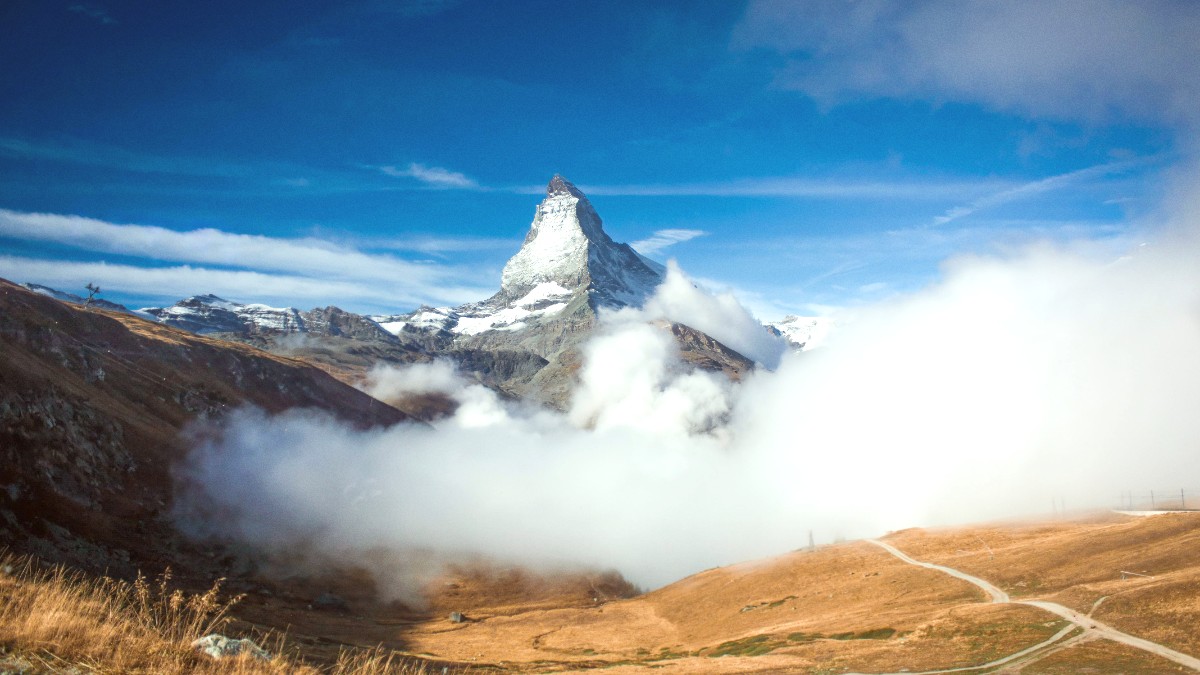
Valais, Switzerland
Zermatt is surrounded by protected alpine landscapes. Efforts extend to responsible management of mountain environments and wildlife protection.
Switzerland has excellent recycling infrastructure. Waste separation is standard. Visitors are encouraged to separate waste into designated bins. Minimize waste by carrying reusable items; Package Free Shop offers reusable products. For sustainable outdoor gear, consider Patagonia.
While Switzerland has abundant water resources, responsible use is encouraged. Avoid excessive water consumption. Zermatt's tap water is clean and safe to drink, minimizing the need for single-use plastic bottles.
Adhering to local customs and traditions fosters genuine interactions.
The Old Village (Hinterdorf) in Zermatt, maintaining its traditional timber barns and houses, is a preserved area. This maintains Zermatt's unique character and historical roots, allowing visitors a glimpse into its past.
A simple "Grüezi" or "Bonjour" upon entering shops shows politeness. Swiss culture values punctuality; arrive on time. Maintain quiet behavior, especially in residential areas and during late hours.
While photographing the Matterhorn and landscapes is encouraged, be mindful when including people in your photos. Always ask for permission before taking close-up shots of individuals.
When visiting churches or chapels, dress modestly (shoulders and knees covered). Maintain a quiet demeanor and speak in hushed tones.
When choosing accommodation, look for hotels with sustainability certifications. In Switzerland, "Ibex Fairstay" or "Swisstainable" are recognized labels. Eco-friendly lodging options exist on platforms like Ecobnb.
Explore Eco StaysSupport tour operators who prioritize small group sizes, adhere to Leave No Trace principles, and promote respectful interaction with nature, such as G Adventures.
Find Ethical ToursCarry a reusable water bottle and refill it from Zermatt's public fountains. This reduces plastic waste and saves money.
Responsible travel ascertains your visit benefits the local economy and community in Zermatt.
Zermatt's tourism largely comprises locally owned and operated businesses. Staying in family-run hotels or guesthouses, and dining at traditional, independent restaurants directly supports the Zermatt community.
When shopping for souvenirs or gifts, seek locally produced artisan crafts. These often generate direct income for craftspeople. Avoid mass-produced items that might not benefit the local economy directly.
Prioritize spending your money at locally owned shops, restaurants, and service providers (e.g., ski rentals, guides). This ascertains tourism dollars circulate within the Zermatt community, upholding local jobs and the village's unique character.
Your spending at local establishments retains money within Zermatt's economy.
This directly upholds local jobs and community welfare.
Support for local businesses sustains the village's unique charm.
Zermatt's tourism is well-regulated, with high labor standards, minimizing exploitation risks. Visitors generally do not need to worry about inadvertently contributing to harmful practices. When participating in guided activities, confirm guides are certified and operate ethically.